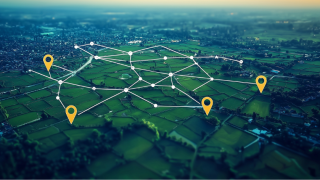In line with the United Nations’ COP26 climate change conference in Scotland this week, most CSPs surveyed in the report said that energy efficiency is either very important or extremely important in their network transformation strategy to counter rising energy consumption and emissions, driven by surging internet traffic growth.
In addition to use of renewables, AI energy management software is key to many CSP strategies to reduce their environmental footprint, as they are quick to deploy, with little to no human intervention.
“Reducing its carbon footprint is an important challenge for the telecommunications industry, given rising internet traffic trends and its implications for energy consumption," said Volker Held, head of marketing for managed services, cloud & network services at Nokia.
"This research from Nokia and GSMA underscores the shared concerns of our industry and the variety of solutions and services that Nokia is working on with communication service providers to address this shared responsibility. AI solutions hold the promise of realising quick and substantial energy efficiency gains and ensure we fully live up to our environmental and social responsibilities.”
The survey found that 83% of respondents see energy efficiency as a major network transformation driver that will increase in importance as 5G is operationalised by industry; while 67% expect their energy costs to rise over the next three years.
Further, respondents acknowledged they are still in the early planning and testing stages of getting their AI efforts off the ground with respect to energy efficiency. While roughly 50% of participants said they expect to achieve energy savings of 10% to 20% over the next two years as AI energy solutions are rolled out and optimised.
Aside from curbing energy demand, AI-powered energy solutions will also drive other outcomes, such as reducing the number of on-site visits personnel have to make to troubleshoot network issues.
“AI has clear and tangible benefits to improving the energy efficiency of telecom networks and is a big part of the solution in driving sustainable 5G networks," said Tim Hatt, head of research and consulting at GSMA Intelligence.
"It’s important to deploy AI early in order to train the algorithms and continually optimise network ops and costs over the long run.”
In support of this Nokia and GSMA Intelligence published a whitepaper that predicts that the implementation of mobile and digital technologies, like 5G, 4G, private networks, and IoT sensors, could create large carbon emission savings in manufacturing, power and energy, transportation, and buildings; all of which account for around 80% of global carbon emissions.






